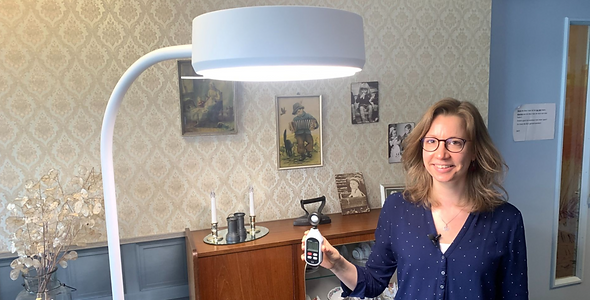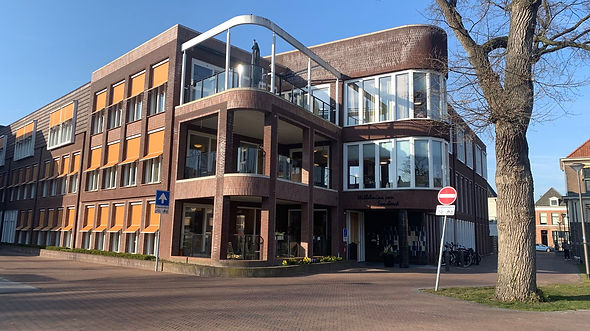
© RTV Oost Jolande Verheij
Verzorgingstehuis,
Nederland
Een verpleeghuis voor mensen met dementie ging biodynamische verlichting gebruiken. Voordat ze het Goede Licht gingen gebruiken, was er veel gedragsstoornissen en tumult in het verpleeghuis, wat zich vooral 's nachts uitte toen sommige bewoners met de deuren begonnen te slaan, meubels te slepen of zelfs fysiek met elkaar in gevecht gingen.
Bij dementie kan het circadiane ritme verstoord zijn, wat kan resulteren in slaapstoornissen en storend gedrag overdag en 's nachts. Ook hebben ouderen meer licht nodig dan jongeren, omdat ze minder vaak naar buiten gaan. Helder licht dat de zon nabootst (Good Light) blijkt gunstig te zijn voor het herstellen van het circadiane ritme, voor een goede nachtrust en voor een beter humeur.

The lamps help to regulate the residents' biological clocks, improving their day-night rhythm. But this does not automatically eliminate all sleeping problems, Engeline says: "If the behavioural disturbances are caused by an irregular rhythm, the lamps will resolve this. But a lamp does not replace an employee. The employee simply has more time left to help people. To help the people who are awake or restless for other reasons, for example because they are in pain or suffer from sleep anxiety."
The result of the biodynamic lighting in this test was astonishing. The pilot started in the middle of the summer months in the living room. The results were:
-
Residents slept through the night again and felt fit, active and were in a better mood.
-
The night-time disturbance decreased by 60%
-
The extra lighting felt pleasant by residents, family and employees
-
The nursing home will expand the lighting to more rooms to help more residents!
© RTV Oost Jolande Verheij

